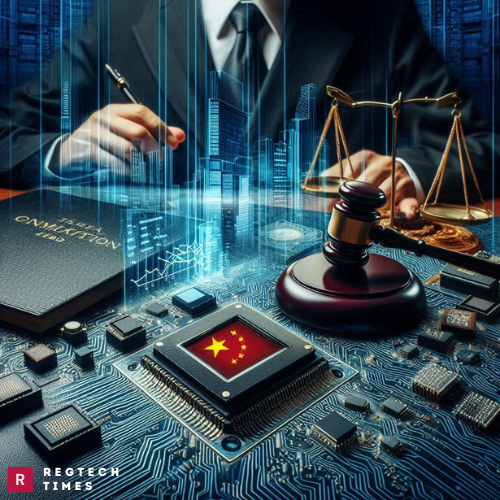In a dramatic turn of events for the semiconductor industry, Choi Jinseog, a prominent South Korean chip executive, has been detained once more on fresh allegations of industrial espionage. This case has captured global attention, highlighting the intense competition and complex issues surrounding intellectual property in the tech sector.
Choi Jinseog’s Initial Legal Troubles
Choi Jinseog, formerly a distinguished executive at Samsung Electronics, ventured into the chipmaking industry in China, launching a new semiconductor venture. His career took a controversial turn in July 2023 when he was indicted on charges related to the theft of sensitive technology developed by Samsung. According to the allegations, Choi had unlawfully acquired and utilized Samsung’s proprietary information to set up a rival chip factory in China.
These accusations marked a significant development in the semiconductor industry, which is fiercely competitive and heavily reliant on technological innovation. The initial charges against Choi Jinseog were a stark reminder of the ongoing battle over intellectual property and the lengths to which companies and individuals might go to gain a competitive edge.
New Allegations and Detention
Despite being released on bail in November 2023, Choi Jinseog’s legal troubles have resurfaced with renewed intensity. The Seoul Central District Court recently issued a new detention warrant for Choi Jinseog, citing concerns about his potential flight risk. The fresh allegations involve the theft of 20-nanometer DRAM chip processing technology from Samsung Electronics. This new twist in the case has intensified the scrutiny on Choi and his activities.
5 Years in Prison: Ex-Hyundai Researcher Sentenced for Leaking Hydrogen Tech
Choi Jinseog has consistently denied any wrongdoing, asserting that the information in question is publicly available and not proprietary to Samsung. His lawyer, Kim Pilsung, has argued that the new allegations are without merit and that Choi Jinseog’s rights have been unjustly infringed upon.
Implications for the Semiconductor Industry
The case of Choi Jinseog highlights broader issues within the semiconductor industry, which is crucial to modern technology and economic development. As the industry becomes more competitive, the protection of intellectual property has become increasingly critical. The allegations against Choi reflect the high stakes involved in securing technological advancements and maintaining a competitive edge.
South Korea, a major player in the global semiconductor market, has been proactive in addressing concerns related to industrial espionage. The country’s legal system is taking a strong stance on protecting intellectual property, as evidenced by the ongoing legal actions against Choi Jinseog. This case highlights the broader efforts by South Korean authorities to safeguard technological innovations and ensure fair competition within the industry.
Security Breach in South Korea: K-2 Tank Technology Leaked to Competitors
Samsung Electronics, as one of the world’s leading semiconductor manufacturers, has a vested interest in protecting its technological assets. While the company has declined to comment on the specifics of the allegations against Choi Jinseog, the case reflects the challenges faced by tech giants in preventing unauthorized use and replication of their innovations.
Legal and Industry Reactions
The legal proceedings involving Choi Jinseog have sparked a broader discussion about the effectiveness of current laws and regulations in combating industrial espionage. As technology continues to evolve and global competition intensifies, the challenge of protecting proprietary information becomes more complex. South Korea’s approach to addressing these issues reflects its commitment to maintaining its position as a leading technology hub while navigating the vulnerabilities associated with a competitive global market.
Industry experts and legal observers are closely following the case to assess its implications for both national and international business practices. The outcome of Choi Jinseog’s trial may set important precedents for how similar cases are handled in the future, potentially influencing approaches to intellectual property protection and industrial espionage on a global scale.
The ongoing legal battle involving Choi Jinseog serves as a reminder of the intense competition and high stakes in the semiconductor industry. As South Korea and other nations work to protect their technological advancements, the legal and ethical dimensions of industrial espionage will remain a critical focus. For now, Choi’s detention and the fresh allegations against him emphasize the need for vigilant measures to safeguard intellectual property in an increasingly interconnected and competitive world.



